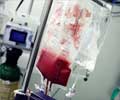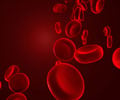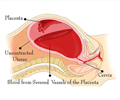It is reported that a Paris-based research team has successfully injected cultured red blood cells (cRBCs) created from human hematopoietic stem cells (HSCs) into a human donor.

Using HSCs (stem cells that form all blood cell types) from one human donor, the team successfully generated billions of cRBCs in a petri dish with the aid of specific growth factors that regulate the proliferation and maturation of HSCs into red blood cells.
Seeking to prove that the cRBCs were capable of reaching full maturation in the body, the researchers then injected the cells into four mouse models and confirmed that the cells were able to progress through the full maturation process.
Using a volunteer donor, the researchers then repeated the process of creating another set of cRBCs and injected the cells back into the donor's own body to assess their survival in a human.
After five days, the survival rate of the cRBCs in the donor's bloodstream was between 94 and 100 percent and, after 26 days, the rate was between 41 and 63 percent, comparable to the average 28-day half-life of normal native red blood cells.
These results demonstrate that the lifespan and survival rate of cultured cells are similar to conventional red blood cells, further supporting their validity as a possible source of transfusion.
Advertisement
"The results from our study establish the feasibility of the concept of transfusing cRBCs and show promise that an unlimited blood reserve is within reach," added Professor Douay.
Advertisement
Source-ANI














